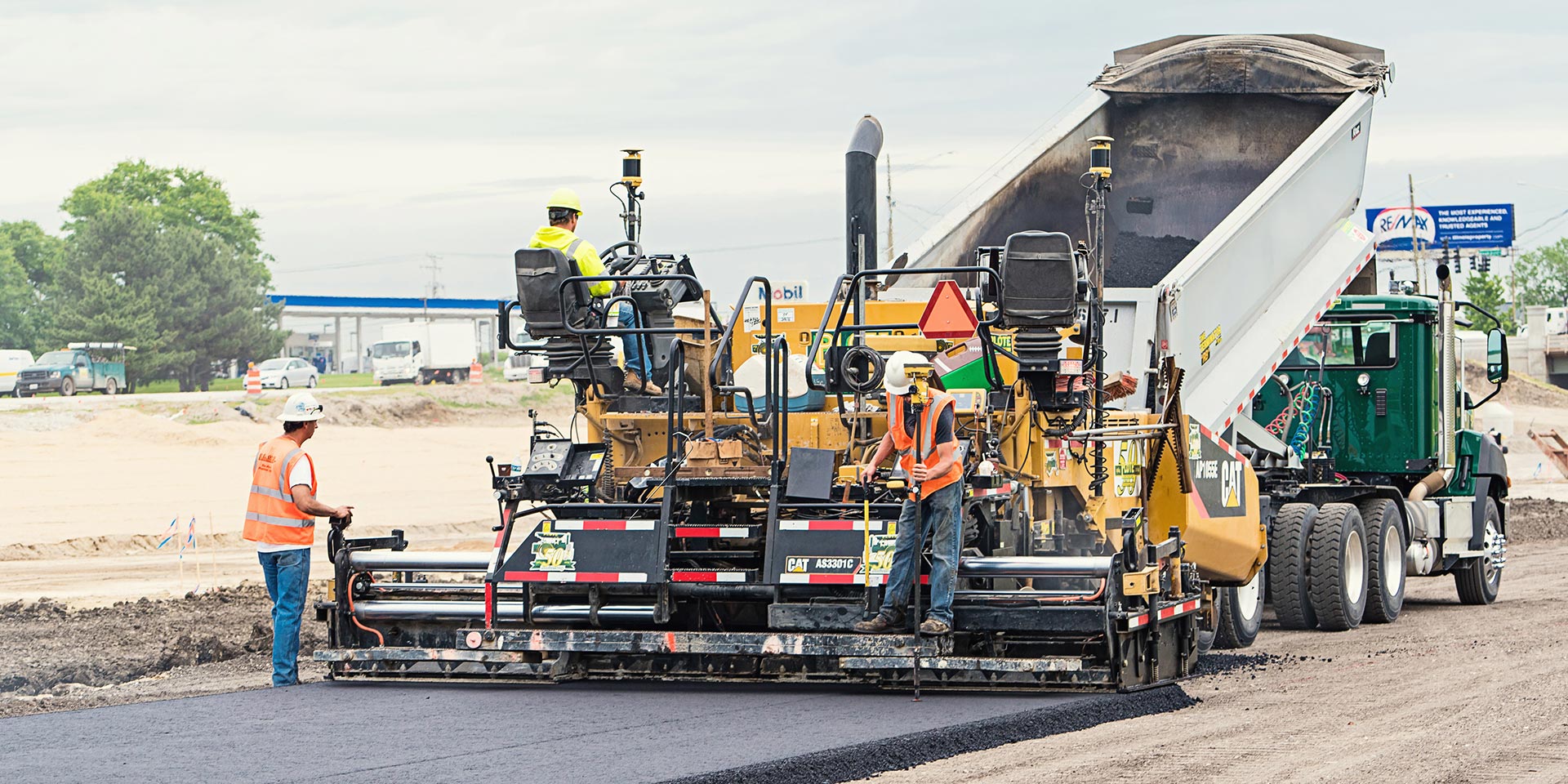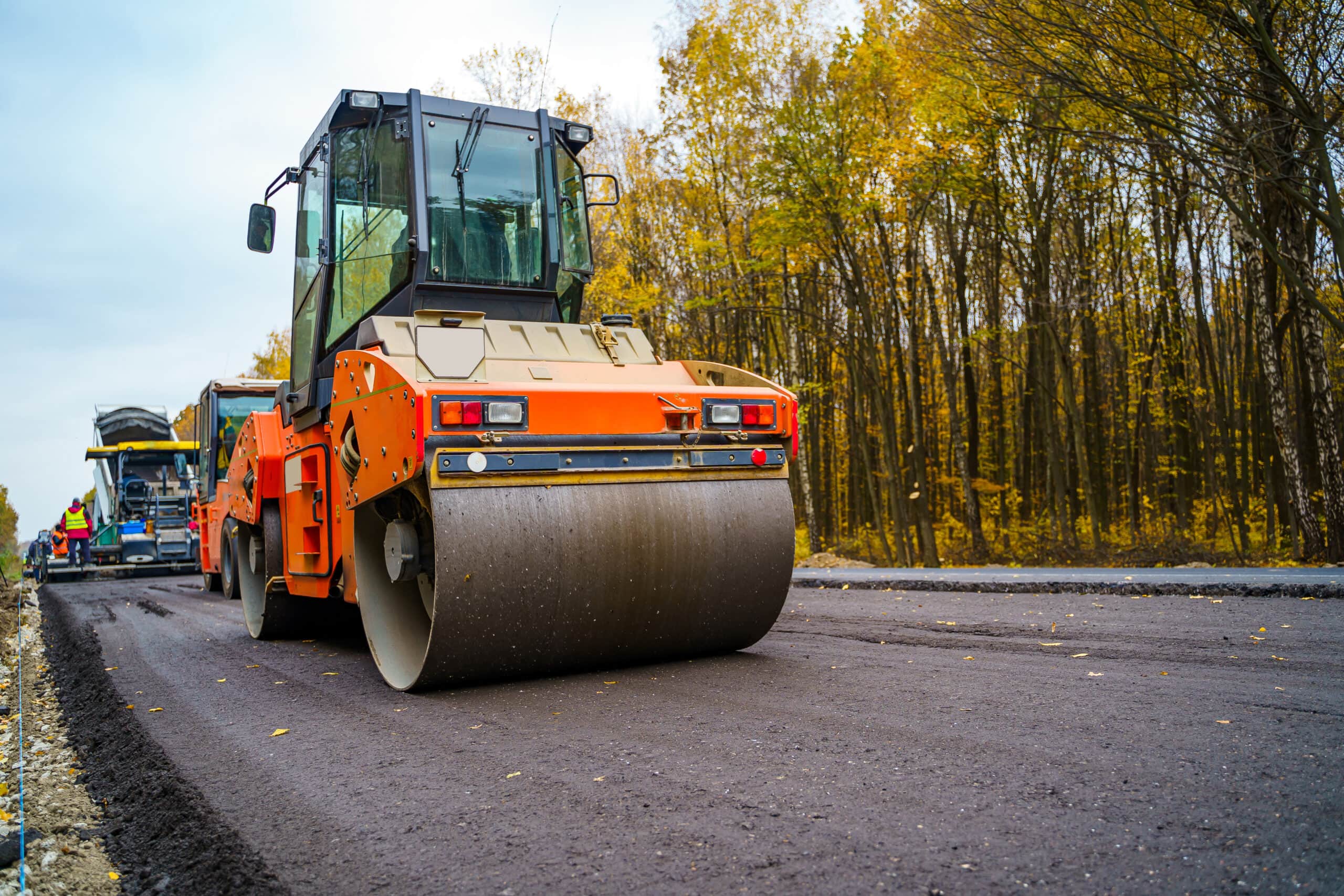Understanding the Various Types of Asphalt Paving Available Today
In the world of construction and facilities, a detailed understanding of the numerous types of asphalt paving is vital for optimum task outcomes. From the robust Hot Mix Asphalt, created for high-traffic areas, to the environmentally mindful Porous Asphalt that facilitates water administration, each kind provides distinctive benefits tailored to details demands.

Hot Mix Asphalt
What makes hot mix asphalt a favored selection for road building and repair services? Hot mix asphalt (HMA) is preferred for its resilience, flexibility, and efficiency under differing problems. Composed of a mixture of accumulations and fluid asphalt cement, HMA is generated at high temperature levels, normally between 300 ° F and 350 ° F (asphalt paving acworth ga). This high-temperature application enables optimum bonding and compaction, resulting in a smooth, durable surface area that can stand up to hefty traffic lots and damaging weather condition.
HMA's capability to be customized to specific task needs is an additional considerable benefit. Different gradations and formulations can be utilized to enhance homes such as flexibility, resistance to contortion, and longevity. In addition, warm mix asphalt can be quickly set up and open up to web traffic, reducing disturbance during building and construction.
Ecological factors to consider also play a function in the preference for HMA. The material is recyclable, and recovered asphalt pavement (RAP) can be reused, promoting sustainability in road building practices. In general, hot mix asphalt attracts attention as a trusted option, properly giving a long-lasting, high-performance surface area that fulfills the needs of contemporary infrastructure.
Cold Mix Asphalt
Cold mix asphalt is a versatile option to warm mix asphalt, especially matched for details applications such as patching and surface therapies. This kind of asphalt is created at ambient temperatures, permitting easier handling and application without the need for comprehensive home heating equipment.
Commonly composed of asphalt emulsions or cutbacks, cold mix asphalt can be blended on-site or purchased pre-mixed. Its buildings allow it to bind well with existing sidewalk, making it an efficient remedy for fixing potholes, fractures, and other surface defects. It can be applied in a range of climate conditions, supplying a functional choice for year-round maintenance.

However, while chilly mix asphalt is perfect for momentary solutions, it may not provide the very same durability or durability as warm mix asphalt under heavy website traffic conditions. It is ideal made use of for low-traffic locations or as a short-term solution until more irreversible repair work can be implemented.
Warm Mix Asphalt
While warm mix asphalt has actually long been the criterion for road building and construction, warm mix asphalt (WMA) has actually arised as an innovative alternative that stabilizes performance with ecological considerations. WMA visite site is produced at significantly lower temperature levels-- typically between 215 ° F and 275 ° F-- compared to hot mix asphalt, which is heated to around 300 ° F. This decrease in temperature not only decreases power intake but additionally reduces greenhouse gas discharges during manufacturing.
The innovation behind WMA includes making use of ingredients or techniques that make it possible for better workability at lower temperatures. These can include chemical ingredients, foaming procedures, or a mix of both. Consequently, WMA preserves the required residential properties for longevity and efficiency while using an extra eco-friendly alternative.

Porous Asphalt
Porous asphalt stands for a forward-thinking technique in pavement design, focusing on both functionality and ecological sustainability. This cutting-edge product is specifically crafted to allow water to permeate via its surface, efficiently minimizing runoff and promoting groundwater recharge. Therefore, permeable asphalt is an outstanding choice for areas vulnerable to flooding or where stormwater administration is vital.
The structure of porous asphalt differs from typical asphalt, including a higher portion of gaps that help with drainage. This building not only minimizes surface water buildup yet also aids alleviate issues like hydroplaning and boosts vehicle grip throughout damp problems. asphalt paving acworth ga. Furthermore, permeable asphalt can add to urban warmth island decrease, as it permits for higher dissipation and cooling results in metropolitan atmospheres
In terms of installation, visit homepage permeable asphalt requires careful factor to consider of underlying water drainage systems to make certain optimal efficiency. Maintenance typically entails normal inspections and cleaning up to avoid clogging from particles, which can impair its leaks in the structure. Generally, porous asphalt acts as a lasting paving option that lines up with contemporary ecological objectives, making it a progressively preferred option for both public and exclusive tasks.
Rubberized Asphalt
Rubberized asphalt is an innovative paving material that incorporates recycled rubber, typically sourced from scrap tires, into the asphalt mix. This innovative technique not only improves the performance of standard asphalt yet likewise promotes environmental sustainability by reusing waste materials. The addition of rubber enhances the adaptability and sturdiness of the sidewalk, making it resistant to breaking and deformation under differing temperature problems.
One of the significant advantages of rubberized asphalt is its ability to decrease sound pollution. The rubber bits soak up audio, causing quieter roadways, which is especially useful in urban areas. Furthermore, this sort of asphalt supplies boosted skid resistance, improving safety for cars.
Rubberized asphalt also adds to expanding the life-span of roadway surfaces, causing minimized maintenance costs with time. This longevity is particularly beneficial for high-traffic areas where deterioration are sped up. Furthermore, its resistance to moisture infiltration helps reduce the threat of water damages, further boosting toughness.
Final Thought
In recap, the range of asphalt paving types-- Hot Mix Asphalt, Cold Mix Asphalt, Warm Mix Asphalt, Porous Asphalt, and Rubberized Asphalt-- each satisfy distinctive features that provide to diverse building and construction and upkeep needs. These alternatives not only boost roadway top quality but also add to sustainability through lowered power consumption and boosted water monitoring. Recognizing these distinctions is important for picking the proper asphalt kind, eventually making sure effective and effective leading remedies in numerous environments.
From the robust Warm Mix Asphalt, created for high-traffic areas, to the environmentally conscious Porous Asphalt that helps with water administration, each kind offers distinct benefits tailored to particular requirements.Generally composed of asphalt solutions or lessenings, cold mix asphalt can be blended on-site or acquired pre-mixed.While hot mix asphalt has actually long been the criterion for road construction, warm mix asphalt (WMA) has emerged as an ingenious choice that stabilizes efficiency with environmental factors to consider.Rubberized asphalt is a sophisticated paving material that integrates recycled rubber, usually sourced from scrap tires, right into the asphalt mix.In summary, the variety of asphalt paving kinds-- Hot Mix Asphalt, Cold Mix Asphalt, Cozy Mix Asphalt, Porous Asphalt, and Rubberized Asphalt-- each meet distinct features that provide to varied construction and upkeep demands.